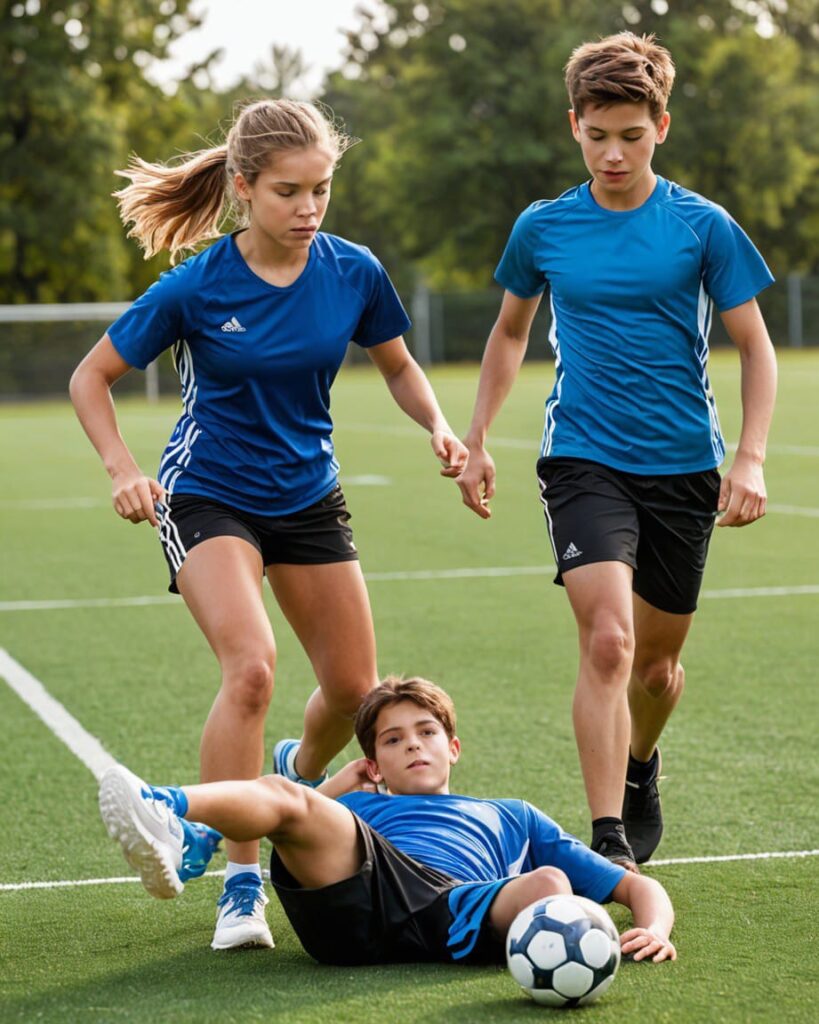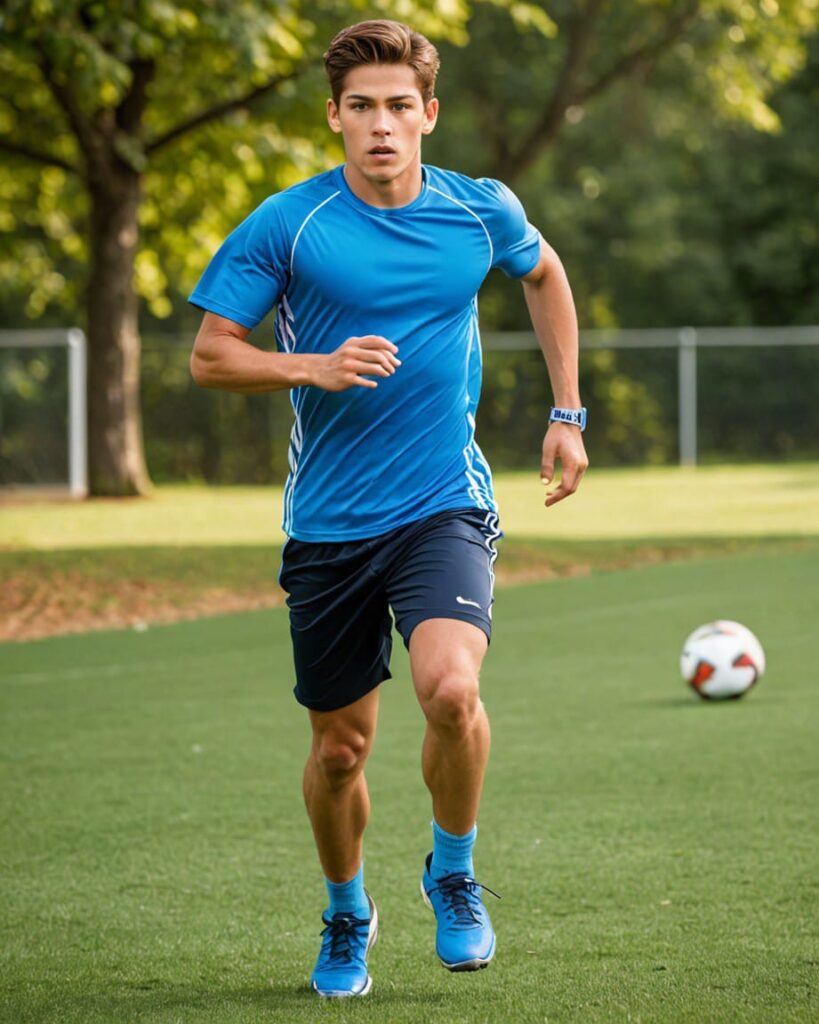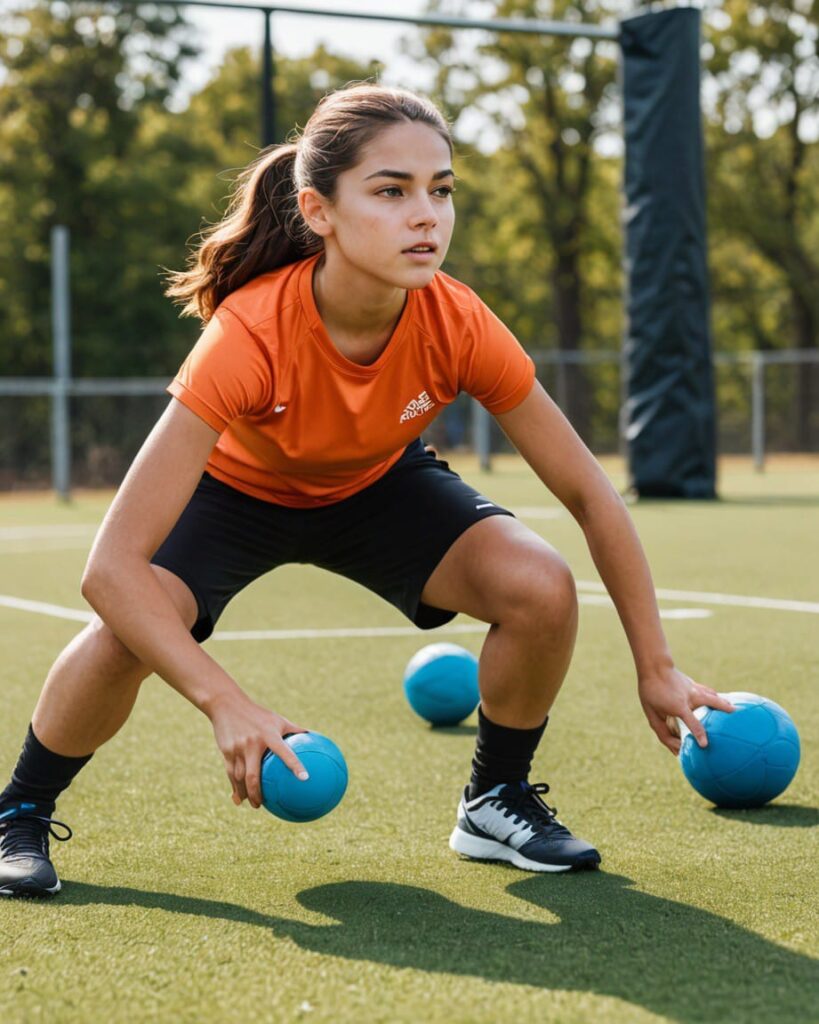Introduction
Because youth athletic health programs aren’t just about taking home trophies: they can transform lives by promoting physical health and mental resilience, by teaching social skills and sportsmanship, and by encouraging lifelong habits that keep kids healthy and out of emergency rooms. Through giving positive and organized atmospheres, they prepare young athletes to be better people on and off the field of play.

The Physical Health Advantage
Promoting Lifelong Fitness
Kids who participate in sports are more likely to be active throughout adulthood—sports-engaged teens have an eight times greater chance of being active at age 24 than those who were not involved in sports (Scripps).
Combatting Obesity and Related Illnesses
Regular physical activity in youth can decrease the risks of obesity, type 2 diabetes, and other chronic diseases and strengthen coordination, flexibility, and cardiovascular health. Scripps.
Mental & Emotional Well-Being
Stress Reduction and Mood Enhancement
Exercise increases endorphins and serotonin, which improves mood, and decreases cortisol, the stress hormone. Sports may be just as effective as medicines in improving teen mental health for some Scripps.
Peer Bonding and Confidence
Involvement on a team provides social connection, improves self-esteem, and teaches teamwork and life skills such as hard work, accountability, and self-assurance (Scripps).
Academic & Cognitive Benefits
Sharper Focus and Better Grades
Participation in sports is also frequently linked to better academic performance, critical thinking, and goal setting (Scripps).
Learning Through Participation
Many programs, including academically based programs such as Girls on the Run, offer girls opportunities to be physically active while learning emotional and life skills, allowing them to gain strength, build resiliency, contribute to a team, become more self-aware, and so forth (Wikipedia).
Safety, Injury Prevention & Inclusivity
Addressing Safety and Medical Risks
Young athletes face risks of injury, from concussions to heat illness to sudden cardiac events, while playing sports. On-site certified athletic trainers lower the risk of injuries and help prevent injuries, and proper screening is crucial to These protocols need to ensure the safety.
Concussion Awareness & Baseline Testing
Inclusive Coaching and Access
Programs such as Coaching Corps prepare volunteers to deliver sports coaching to underserved communities and to ensure equity and access for all children.

Creating Good Mindsets & Lifelong Values
Holistic Youth Development
Models that are integrative (such as the National Youth Sports Program at CWRU) pair athletic training with life skills, mental health, academics, and career prep—offering well-rounded development forward.
Character Building in Sports
Focusing on characteristics such as fair play, trust, respect, and citizenship, organized sports may be utilized as an environment that promotes good sportsmanship and value-upbringing among youth athletes (NCBI).
Summary of Core Benefits
Domain Impact of Youth Sport for Health Programs Physical Health Higher fitness, decreased risk of obesity, improved coordination, and lifetime sports habits Mental Wellness Decreased stress and depression, better self-concept, increased social bonding Academics & Growth Better attention, academic performance, leadership, and resilience Safety & inclusion Injury prevention, management of concussion, access to equitable coaching Values & development Character building, life skills, emotional competency
Frequently Asked Questions (FAQs)
- How old should children be when they begin to take part in structured youth athletic programs?
Age-appropriate activities are key. A little basic movement (running, throwing, balancing) can start in the preschool years, while children who are elementary-school age and older may enjoy more structured sides and competitive sports (1, 2).
- What are the risks of youth sports?
Yes—injuries and health emergencies like heat illness or a sudden cardiac event can happen. Safety protocols like athletic trainers, warmup routines, hydration, and medical screenings at uphealthsystem.org should be found in programs. Wikipedia The Times of India.
- What sports programs can do to foster mental health.
Physical activity is a great way to alleviate stress, connect with new people, and improve your mood. Some programs also come with mental health modules or the option to speak with counselors.
- What interventions lead to equitable utilization of youth sports?
Non-profits, including Coaching Corps, offer volunteer coaching in underserved areas. A comprehensive approach that links schools, communities, and programs serves to lower barriers and increase participation.
- Do sports programs help in making kids do better in school?
Absolutely. Participating in spelling bees promotes discipline, critical thinking, and cognitive retention—frequently leading to improved academic achievement and greater educational success.

Conclusion
Youth athletic health programmes have an enormous impact on growth in every category, from physical to mental, social, and academic. They promote healthy habits, mitigate danger, develop psychological resilience, and encourage safe and inclusive environments. Combining the essential elements of physical training and conditioning with psychological wellness and overall education, these programmes are forging the young generations of tomorrow into healthier, more self-assured, and all-around children. For kids everywhere, the field is more than just a game—it’s a classroom for life.